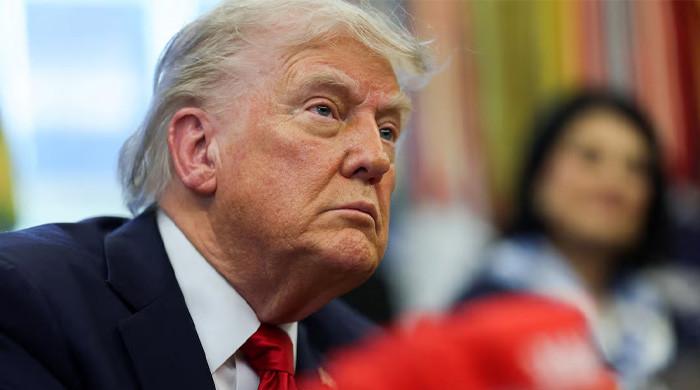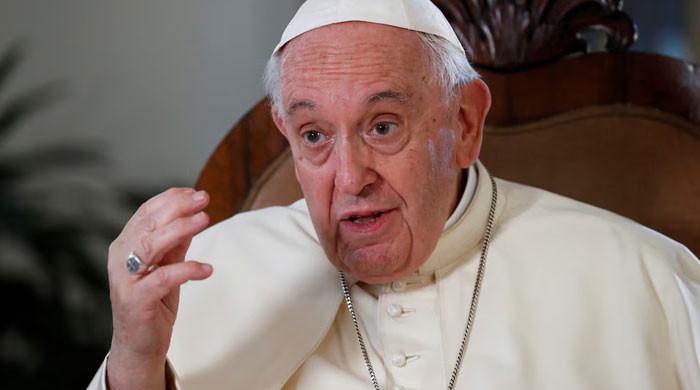Smriti Irani-led rare non-Muslim Indian delegation pays visit to Madina
In a rare Riyadh-New Delhi diplomacy, a non-Muslim Indian delegation has been given access to the holy city of Madina
January 10, 2024
In a rare diplomacy, a non-Muslim Indian delegation has been given access to the holy city of Madina Munawara in Saudi Arabia.
The non-Muslim Indian delegation, led by the ruling Bharatiya Janata Party’s (BJP) Minority Affairs Minister Smriti Irani, reached Saudi Arabia on Monday to pay a two-day official visit.
The Hindu delegation visited Masjid Nabawi (SAW), Uhud Mountain, Masjid Quba, the first mosque in the world established by the Holy Prophet (PBUH).
There is a total ban on non-Muslims entering Makkah as well as parts of the holy city of Medina. Attempting to enter can result in penalties, including fines or deportation. The Irani-led delegation thus is the first group of non-Muslims to enter the city and visit historic places of Islam.
The Saudi authorities granted special permission for the visit on Irani’s request. V Muraleedharan, Indian minister of state for external affairs and parliamentary affairs, was also in the delegation.
Interestingly, besides Irani, another woman in the delegation was Nirupama Kotru, a Kashmiri Pandit IRS officer posted as joint secretary in the Indian Ministry of Minority Affairs.
The two women in the delegation moved around in Sari and Shalvar-Kameez without covering their heads. Smirti had also worn Bindiya on her forehead. The male state minister had a traditional male Indian outfit of off-white Dhoti and saffron Kurta. Former artist Irani, who played Tulsi in the Indian soap Kyunki Saas Bhi Kabhi Bahu Thi, posted a collage of images of her visit to Madina Munawara on X and wrote:
“Undertook a historic journey to Madinah today, one of Islam’s holiest cities included a visit to the periphery of the revered Prophet’s Mosque, Al Masjid Al Nabwi, the mountain of Uhud, and periphery of the Quba Mosque – the first Mosque of Islam. The significance of the visit to these sites courtesy Saudi officials, intertwined with early Islamic history, underscores the depth of our cultural and spiritual engagement.”
According to an official statement, the Indian delegation visit would give an idea of the arrangements required to be made for the Haj pilgrimage this year.
“The Government of India is deeply committed to assist in providing facilities and services to Indian Muslims who undertake the Haj pilgrimage, thereby providing them with a comfortable and fulfilling experience,” the communique added.
“India and Saudi Arabia share warm and cordial ties and the Government of India deeply appreciates the special gesture of Saudi’s Ministry of Haj and Umrah in facilitating this visit of the Indian delegation to Madinah,” it further said.
During her visit, the Bilateral Haj Agreement 2024 was signed between India and Saudi Arabia. As per the agreement, India has been allocated a quota of 175,025 pilgrims for the 2024 Haj pilgrimage. This exceptional gesture by the Saudi side, welcoming a non-Muslim delegation to Madina, underscores the strength of the bilateral relations between India and Saudi Arabia. As both nations continue to forge stronger ties, this historic visit is poised to contribute significantly to mutual understanding and cooperation in the realm of religious and cultural exchanges, Indian media reported.
During the visit, Irani also met Saudi and Indian business professionals to explore investment opportunities and foster stronger bilateral relations between the states.
Earlier, the Indian delegation explored the cultural richness of Al-Balad, a Unesco World Heritage Site, preserving the vibrant cultural heritage of Jeddah. The delegation comprised senior officials from the Ministries of Minority Affairs and External Affairs. It was aimed at strengthening the bilateral relations and gaining valuable insights into the arrangements required for the upcoming Haj pilgrimage.
Irani also held enriching discussions with the Indian diaspora, comprising dedicated Haj volunteers and community members. She also discussed with the Saudi and Indian business professionals, emphasizing the crucial role of economic ties in fostering strong bilateral relations.
On her experience of visiting Saudi Arabia, Nirupama Kotru told Indian media: “As a woman, I felt rather empowered to be in Medina. It was a rare and historic occasion where Smriti Irani Ma’am and I were roaming around with heads uncovered, all over Medina. Saudi Government gave special permission for our delegation to visit all three landmarks of Medina on Madam’s [Smriti Irani] request.”
However, Kotru clarified that in Quba the delegation did not enter the mosque but went up to the periphery. The entry of non-Muslims is strictly banned in this mosque.
India’s trade outreach is fast becoming the centrepiece of its deepening relationship with the Middle East. India’s relations with Saudi Arabia have also witnessed unprecedented growth in recent years, marked by a remarkable rise in trade and other investments.
According to media reports, India’s trade with the Arab world has already surpassed an all-time high of $240 billion a year. India is the second-largest trading partner of Saudi Arabia. India’s foreign trade with Saudi Arabia reached an all-time high of $52.75 billion in FY23. Motor vehicles, refined and value-added petroleum products, rice, organic chemicals, copper products, telecom equipment, buffalo meat, and aluminium products are India’s major exports to Saudi Arabia. In contrast, it imports crude petroleum, fertilisers, plastic raw materials, organic and inorganic chemicals, etc.











